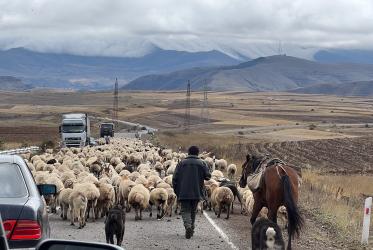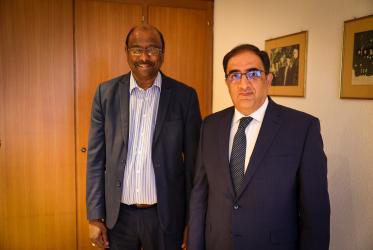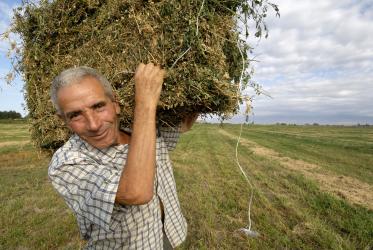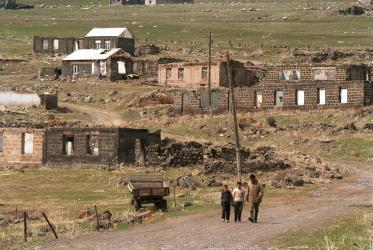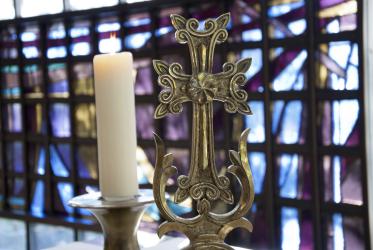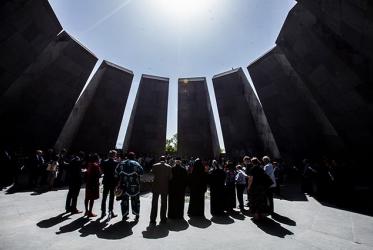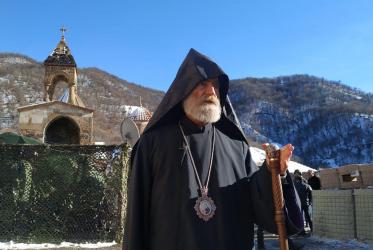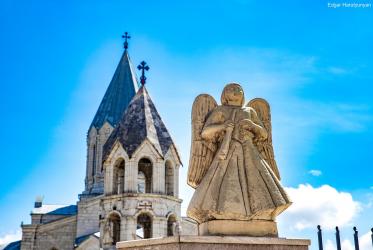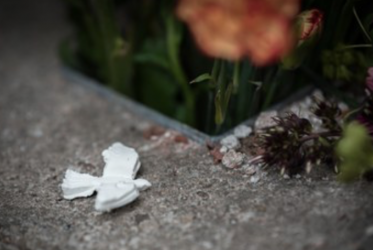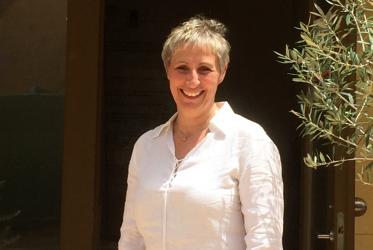Displaying 1 - 20 of 27
25 September 2023
WCC prayer commemorates Genocide Remembrance Day
24 April 2023
Churches should use their voice on climate change
26 February 2020
Fr Alexi - a peacemaker in Syria
21 December 2018
Creating a better future for Syrian-Armenian youth
29 March 2018
One refugee’s story: from Syria to France
07 January 2016
